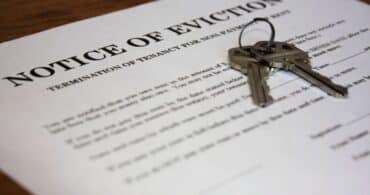Landlord Buildings Insurance: Warning to Check Your Sum Insured
Landlord buildings insurance covers rental property against risks such as flood, fire or vandalism. The cover meets the costs of repairing or rebuilding the property but, if your sum insured isn’t sufficient to cover the full costs of a rebuild, you may find yourself either having to make up the difference yourself, or surrender the property. With construction costs recently facing a huge hike, it is vital to check that your sum insured remains realistic.
Landlord buildings insurance covers rental property against risks such as flood, fire or vandalism. The cover meets the costs of repairing or rebuilding the property but, if your sum insured isn’t sufficient to cover the full costs of a rebuild, you may find yourself either having to make up the difference yourself, or surrender the property. With construction costs recently facing a huge hike, it is vital to check that your sum insured remains realistic.
What is the ‘sum insured’?
The buildings sum insured refers to the maximum amount that an insurer would pay out to rebuild your property in line with current Building Regulations and other associated legislation in the event of it being significantly damaged, or destroyed altogether.
The sum insured is most definitely NOT the price you paid for the property, or its current market value. This is because the sum doesn’t just cover the cost to rebuild; it also covers the costs involved in demolishing and clearing the damaged building, as well as professional and local authority fees.
How to calculate the sum insured?
You will find your buildings sum insured on a home valuation report or mortgage survey. If neither of these apply, you can arrange for a RICS chartered surveyor to carry out an independent onsite valuation, or engage a specialist valuation provider to undertake a desktop valuation.
It is down to you as the insured party to make sure that the sum insured is accurate.
For residential property, insurance policies tend to be index-linked, with the House Rebuilding Cost Index mostly used for automatically updating the sum insured when the policy is renewed. Of course, this relies on an accurate sum insured being stated in the first place.
However, the Building Cost Information Service (BCIS) recommends that the rebuild cost is reviewed at least every five years, rather than relying on index linking long term. This is because the index is based on an average of house types, which means it won’t take regional trends and changes in labour and materials costs into consideration. The latter being a considerable issue at present.
Increase in construction costs makes it vital to check sum insured
Construction costs are on the rise, and it’s a considerable rise. Material costs have hit their highest levels for several years. Timber has increased in price by over 80 per cent in the past six months alone. Paints and varnishes have gone up by more than a third, and supply problems around roofing materials have resulted in price rises of over 15 per cent.
The most recent data from the Office for National Statistics (ONS), published by the Department for Business, Energy and Industrial Strategy for June 2021, has uncovered that the cost of construction materials year on year went up by 14.7 per cent.
One of the biggest reasons for the hike has been demand outstripping supply during the pandemic, with so many people renovating their homes. But there is no sign of this trend abating. Labour costs have also amplified due to a shortage of skilled trades and logistics personnel, and aggravated by Brexit.
Furthermore, updates to legislation in the construction sector, with enhanced focus on safety standards, is likely to increase rebuild costs further, with professional consultancy fees becoming more of a necessity. Environmental aspects and a move to eco-friendly materials which are higher in cost have also influenced the situation.
Is your sum insured sufficient to cover rebuild costs for your rental property?
Under-insurance can have devastating consequences. Landlord buildings insurance policies normally carry an ‘Average Clause’, which means that, if the sum insured is lower than the value at risk at the time of the loss, the claim will be reduced by the same proportion.
Say for example your rental property is insured for £200,000, but the cost to rebuild is actually £400,000, then any claim you make on the property could be reduced by 50 per cent. This means you would need to find £200,000 yourself to get your property rebuilt in the event of an incident such as a fire destroying the whole building.
Bearing in mind the latest upward trend in construction costs, it is essential that you take steps to make certain that your buildings sum insured is adequate.
The Association of British Insurers provides a useful guide to calculating your rebuild cost. If you are in any doubt as to your sum insured, it is advisable to think about arranging a professional valuation of your property via a RICS qualified surveyor.
Now your peace of mind is ensured, guarantee your rent with homes2let
For landlord insurance of another kind, the homes2let guaranteed rent scheme will ensure your rent is paid in advance by standing order every month, regardless of whether the tenants are paying or whether it’s tenanted. Also included is a comprehensive property management service, so you can let us shoulder the full burden of your buy to let investment.
To discover how the homes2let guaranteed rent scheme works, and how the team at homes2let can save you valuable time and money, and reduce your risk, we welcome you to get in touch.
Related Insights

Autumn Budget 2021: Landlord Update
The focus of today’s Autumn Budget and Spending Review was post-pandemic economic recovery. From grants to help landlords replace boilers, to a deadline extension for Capital Gains Tax, there are a number of announcements that look set to impact landlords and property investors.

Loophole Means Section 21 Ban Delay “is Not What it Seems” – Claim
Goodlord's Oli Sherlock argues the government's delay on the Section 21 eviction ban is misleading. Despite assurances, some landlords may still serve Section 21 notices. Learn about the potential loopholes.

Lockdown Latest: Rental Market Open for Business
Housing secretary Robert Jenrick has announced that the rental market in England will stay open during the new four-week lockdown starting 5th November. Renters remain able to move, letting agents and removal firms can continue to do their jobs, and property maintenance and repair contractors, cleaners and inventory clerks can enter properties, providing they adhere to COVID-secure guidelines.







